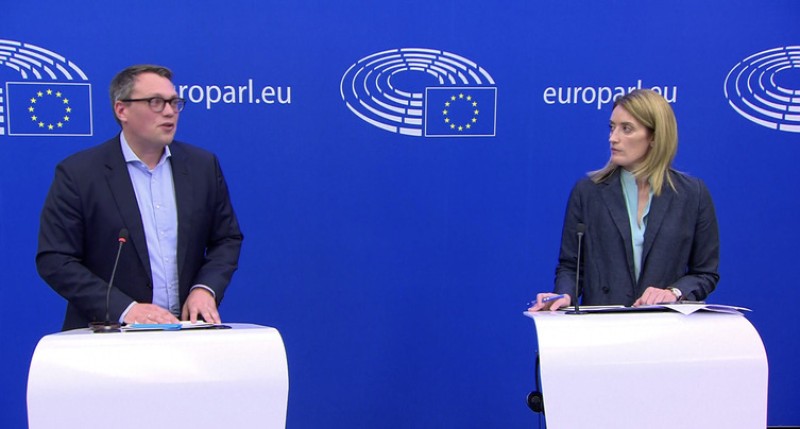With 498 votes in favor, 33 against, and 105 abstentions, Members of the European Parliament adopted on Tuesday their negotiating position on new rules and approved draft legislation aimed at safeguarding individuals working on matters of public interest, such as fundamental rights, activities of public officials, or corruption allegations.
However, some experts say the EU Parliament watered down the initial text so much that the legislation will be ineffective.
Now the Parliament will talk to member states about the final shape of the legislation.
The so-called Strategic Lawsuits Against Public Participation (SLAPPs) are defamation cases brought by wealthy individuals or corporations to evade scrutiny in the public interest. Whether they win in court or not is less important to the plaintiffs. The point is to drain the budgets of the accused through expensive trials.
Those who file a SLAPP lawsuit would have to cover the full costs of the proceedings, including the defendant's legal representation, and face penalties. The SLAPP victim should be able to seek compensation, including for psychological or reputational harm.
To prevent claimants from choosing the court most likely to side with them, defamation cases will only be admissible in the defendant's national court.
EU member states will have to establish one-stop-shops where SLAPP victims can seek information and advice, and national authorities will provide those targeted by SLAPPs with financial, legal, and psychological assistance.
During a press conference on Wednesday, Roberta Metsola, the President of the European Parliament, emphasized the need for training programs to be implemented for SLAPP victims, judges, and lawyers, as the current legal system lacks such resources.
"We realized that our lawyers are not trained, but also our judges are not trained. In other words, when faced with an application to protect or freeze an asset of a journalist, this is a new area of jurisprudence," she said.
Consequently, EU countries will also have to ensure that legal practitioners receive adequate training to deal with SLAPP cases and that their professional associations adopt rules discouraging members from taking up abusive lawsuits.
However, these rules will apply only in "cross-border cases" where the defendant and claimant and the court are not in the same country.
They will also apply when something that is shared online, such as a news article, social media post, research, or video, is relevant to more than one EU member state and can be accessed electronically.
Reporters Without Borders said the Council has weakened the European Commission's proposed version to such an extent that the directive would essentially be ineffective.
It has reduced "the directive's scope enormously by limiting it to cross-border cases, in other words, to cases where the two parties concerned are domiciled in different Member States, which is not the case in the vast majority of SLAPPs," the media watchdog said.
"If Member States do not backtrack, this directive will be a complete waste of time. Reinstating the key provisions that were removed is essential in order to prevent continued misuse of the courts to silence journalists," said Julie Majerczak, RSF's representative to the EU.



